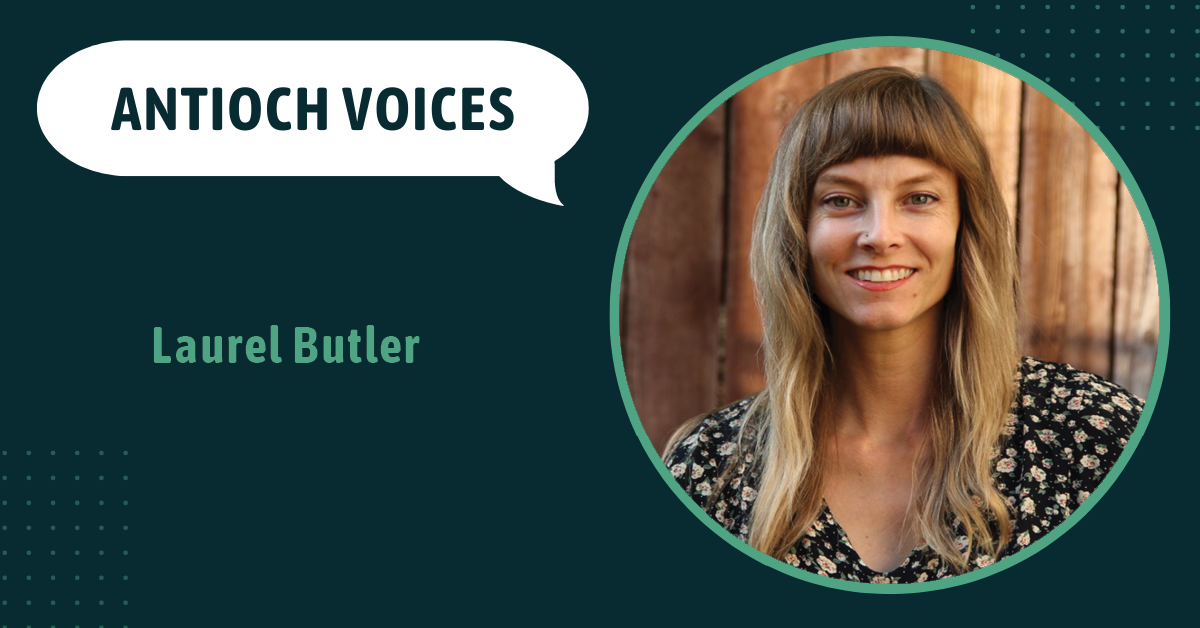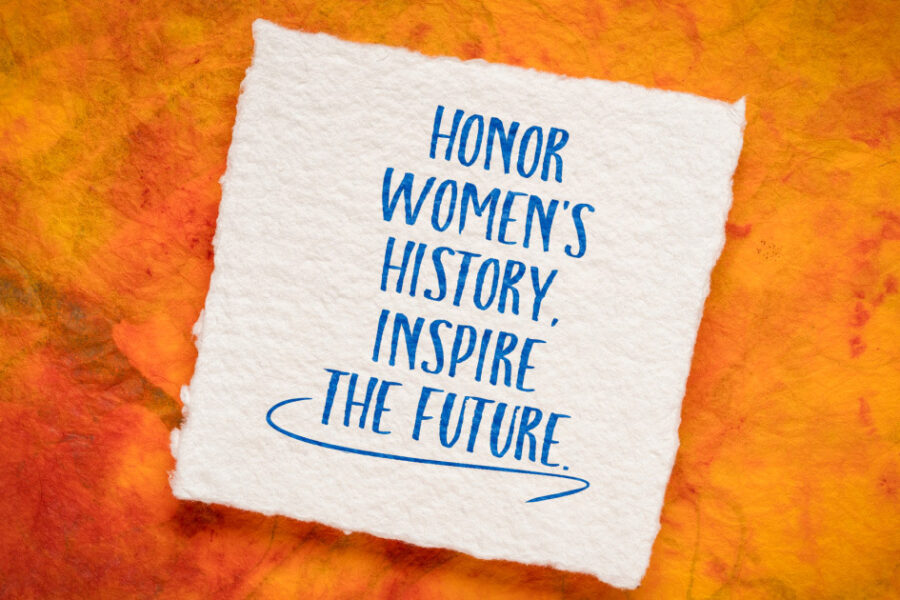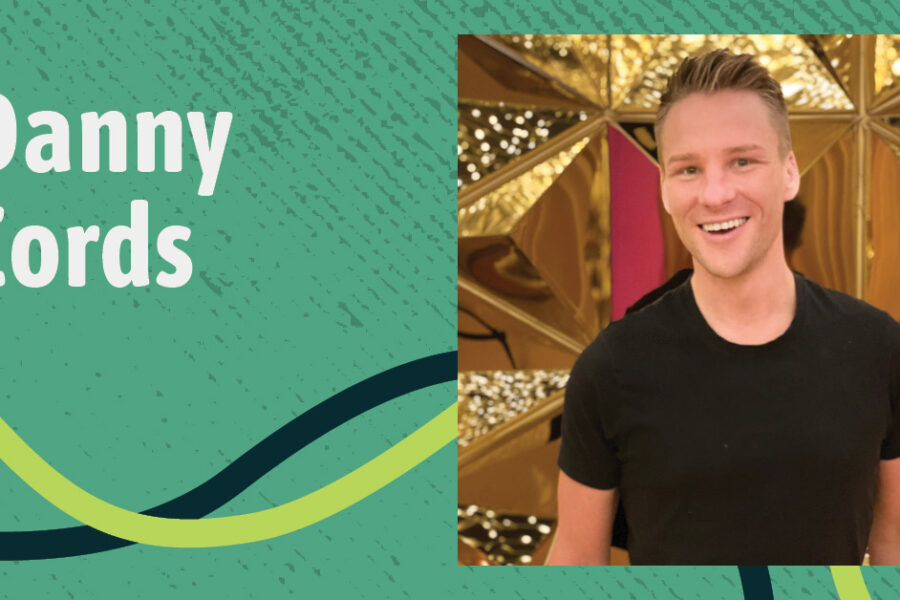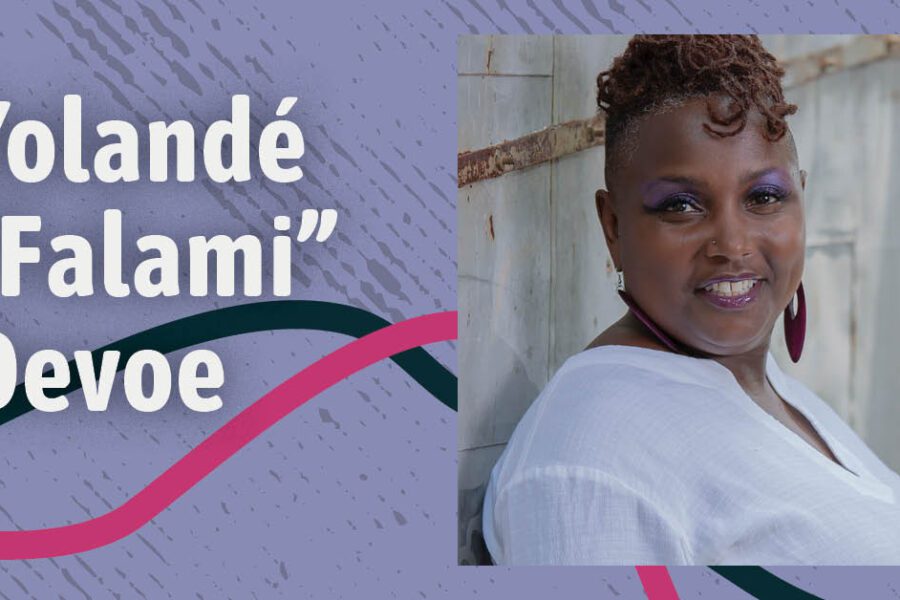This essay is part of Antioch Voices, a forum for Antiochians to speak out about issues important to them. Opinions expressed here belong to the author alone and do not necessarily reflect the official position of Antioch University. If you’d like to share your own voice, the first step is to send a short description of what you are planning to write about to [email protected].
Like so many of us, my mental health as a teenager was… not great. At the time, I thought it was an individual problem – what’s wrong with me? – but in retrospect I realize that the suffering had a collective aspect. Growing up in the suburbs, my peers and I were caught in a schism between critical consciousness of the systemic inequities that underpinned the fabric of our community, and a sort of muffled or muted sense of comfort afforded to us by the relative bubble of privilege. This fragmented awareness permeates my memories of youth: knowing that my classmates and I were afforded different access to resources and social capital based on our relative proximity to wealth and whiteness, accompanied by a creeping understanding that interlocking systems of injustice seemed to form much of the infrastructure of social and cultural life in millennial America. We were beginning to perceive that the myths we’d been sold in childhood were hollow, that elements of structural oppression were woven into our everyday lives. By adolescence, for many of us, this manifested behaviorally. We snuck around. We drank and did drugs. We ditched class and got into fights. We were reckless with our own bodily safety. We cried out for attention and belonging, and took it where we could find it. Much of this was standard teen behavior, but there was an edge to it, a rebellion, that in retrospect seems like a very specific response to our cultural and socio-historical circumstances.
Freshman year of high school I discovered theatre, and it became the safe space amidst the turmoil. The place where things made sense – or, rather, where we engaged in the practice of sense-making. Doing theatre taught me from the inside out about the fundamental nature of role-playing and storytelling, about the performative quality of so many elements of the human experience. It taught me about human agency in the construction of worlds: if my peers and I could build a set of an entirely different city, or perform a scene that replicated antiquity, then perhaps we could construct aspects of our own reality with real impact and implications. Backstage, too, was a transformative experience: social strata collapsed as young people from different cliques found the freedom and flexibility to try on different roles and relate to one another without the baggage of stereotype. We played games that dropped us into the essential nature of being human. We shared music whose lyrics gave us a critical-analytical framework to understand our place in the world. We asked questions about human nature. We solved problems collaboratively. We researched the dramaturgy of the plays we performed, learning about patriarchy and colonialism, transnational migration, how forces of power and oppression shape the stories that form our collective history. It was a space separate from all others, where we could rehearse ways of being that weren’t available elsewhere. It was radical.
For the twenty-five years since that first theatre class I have devoted my professional and scholarly life to the idea that arts programs offer life-changing spaces for young people. I have run performing arts programs in schools from Pre-K through 12th grade, non-profits and community spaces, summer camps and afterschool programs, jails and detention centers, re-entry and diversion programs, professional theater companies, school districts, county offices, academic conferences, and colleges and universities throughout the country. In every space I find the same phenomenon: facilitating a space for the arts allows us to drop the mask for a moment, to talk about the things that really matter to us, and to metabolize our stories through creative and collective practice, connecting our lived experiences to the larger cultural and historical context. To me, these spaces are rehearsals for utopia. And no one is more in need of believing in utopia than teens.
In his 2018 Medium article, Dr. Shawn Ginwright proposes shifting the paradigm of youth work “from trauma-informed care to healing-centered engagement,” situating young people’s lives in a larger cultural-political framework beyond the lens of individual traumatic experience. I might propose that between the climate crisis, the COVID-19 pandemic, and the ongoing struggle for intersectional social justice, being a teenager in 2023 means necessarily living in conditions of traumatic stress. The feelings produced by these conditions can easily be pathologized: “I feel so anxious, so depressed, something is wrong with me.” But time and again I have seen youth arts programs create space for identity-based storytelling that illuminates students’ understandings of the connections between the personal and the political. The effects of this process – which Paulo Freire might call conscientizaçao – cannot be overstated. Once young people can draw a direct line between their own struggles with the human condition and the unjust systems that so often undergird that condition, they begin to experience something Dr. Dana Wright calls transformative agency: the understanding that there is not something wrong with me, there is something wrong with the system, and if systems are created by humans, and I myself am a creative human, than I too have the power to change things.
We see this creative and collaborative response to traumatic circumstances in the youth from Marjory Stoneman Douglas High School and the March for Our Lives, in Greta Thunberg and the School Strike for Climate, teenagers everywhere using performance-based techniques to turn things they care about into real community impact and policy change. I saw it in myself as a teen in theater class, and I see it in the students that I teach every day. Perhaps there is a teen in your life who is feeling challenged by the circumstances of life in modernity. Help them find the opportunity to spend time in a youth arts space. To access and articulate their own story of struggle, to process it artistically and share it with a trusted and supportive community, and to see the ways in which their story interacts with the larger movement for social justice. It could change their life.
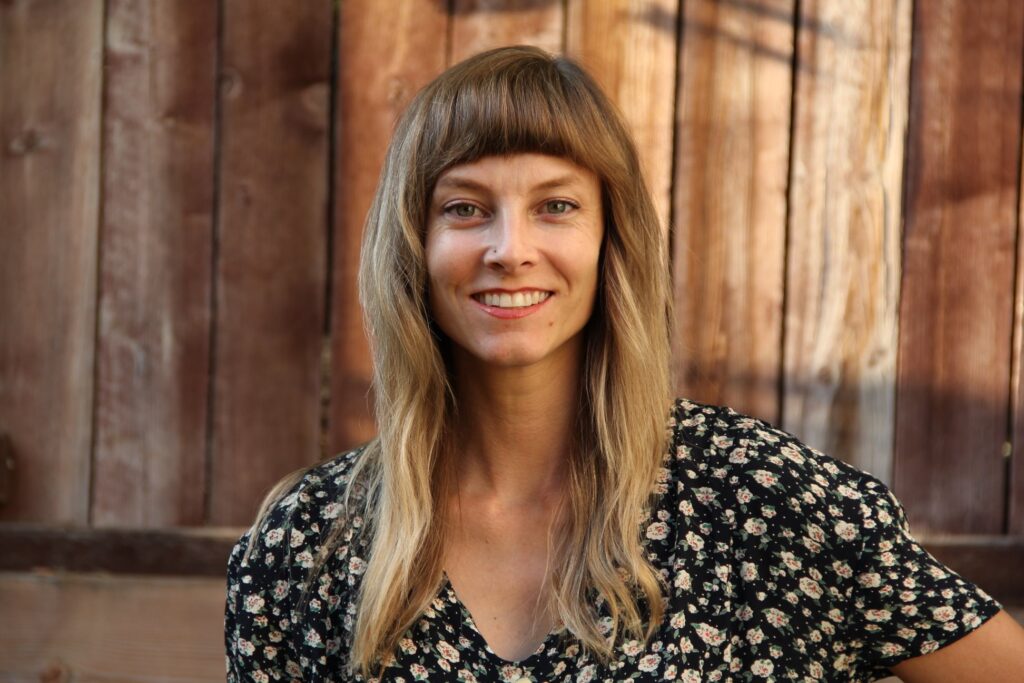
Laurel Butler
Laurel Butler is a Doctoral Candidate in the Antioch University EdD Program in Educational and Professional Practice with a specialization in Social Justice Leadership. She teaches on Faculty in the Loyola Marymount University College of Communication & Fine Arts and runs her own arts education consulting practice based in Los Angeles, where she currently lives with her husband and one-year-old son, Leo.

